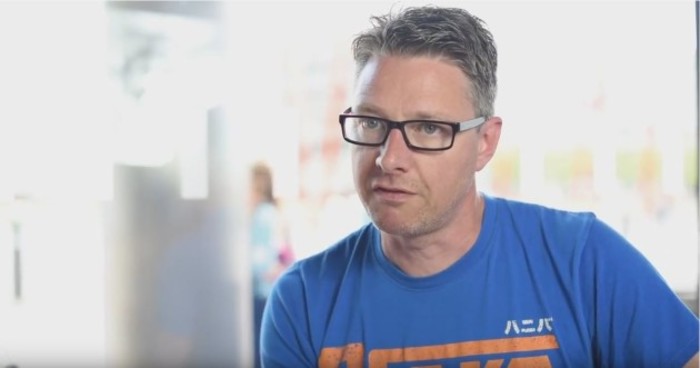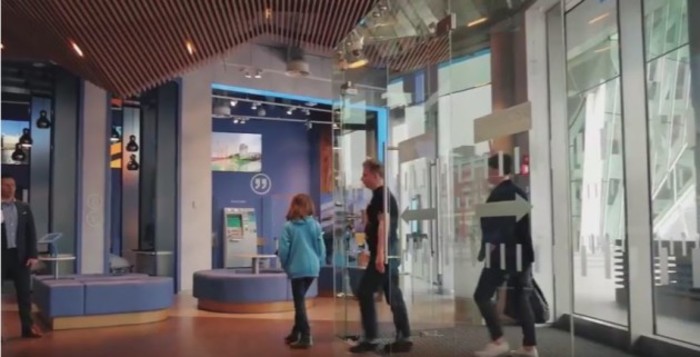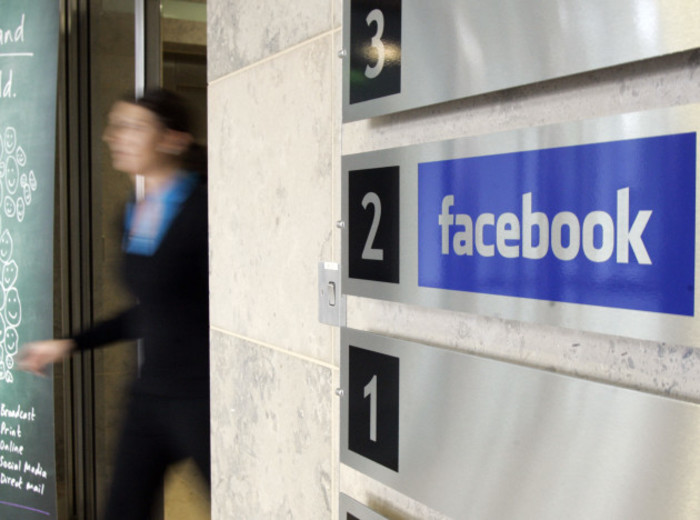This Dublin fintech startup wants to make money as shareable as cat videos
Plynk is developing a chat app for sending funds – as well as messages.
SENDING MONEY TO friends should be as quick as messaging a photo.
So says Charles Dowd, co-founder and chief executive of Plynk, a payments app that lets users chat with friends and send them money.
“You probably still remember the person who didn’t buy a round in college 25 years ago,” Dowd tells Fora.
“It’s funny because those numbers are much, much smaller than your mortgage or your rent or utilities – but much more important because they’re social.”
He believes that if friends could send each other money immediately, without having to rely on bank transfers or cash, they would avoid the awkwardness of trying to split a bill – and would have fewer excuses for not covering their share of the bar tab.
Plynk, which isn’t available to download yet but is due to go live next year, will function in the same way as other chat apps except users can send money as well as messages.
“With text, photo, cat videos, location, whatever, when you get the message, you have it,” Dowd explains. “With money, you get a notice that says, ‘Hey, maybe money might come in the future. Your friend might give it to you – maybe.’ Sometime in the future, it cycles through and gets to you.
“We’re trying to make (an app) that creates new social contracts between people so it becomes normal for you to settle (bills) immediately … When you get the message, you have the value.”
 Plynk CEO Charles Dowd
Plynk CEO Charles Dowd
Social network
Dowd speaks a lot in social networking lingo. He talks about “connecting” people and “person-to-person” transactions. This is probably because of his four-year stint working for Facebook.
Accordingly, he sees Plynk as more of a social network than a financial service.
“Money has always been interesting to me,” he says. “I look around and I watch people interact and it causes problems with people, when you think about it.”
Dowd says Plynk, which was developed at the Bank of Ireland ‘workbench’ in Grand Canal Square, “sits on top of the banking system”.
The science behind the app is a little bit complicated, probably because it is still in development.
Basically, Plynk operates through a third-party partner, which is regulated by the Financial Conduct Authority, a UK-based body that monitors the financial services industry. Plynk itself is not yet regulated, but Dowd says it will be eventually.
 Bank of Ireland 'workbench'
Bank of Ireland 'workbench'
Users open a payment account through Plynk. That account has its own IBAN, but doesn’t function in the same way as a current account.
For one thing, it doesn’t accumulate fees – Plynk will be free to use, Dowd says. Users can top up their Plynk account by transferring money from their regular bank account, but it doesn’t interfere with their day-to-day banking.
“We don’t put your money at risk, we don’t do financial services – we just operate payment accounts,” Dowd says.
Credibility
He says that having Peter Oakes, the founder of Fintech Ireland and ex-director of enforcement and financial crime at the Central Bank, as an adviser has helped with the startup’s credibility, while Sonia Flynn, the international vice president at Soundcloud, is also on board.
 Facebook Dublin
Facebook Dublin
Like Dowd, Flynn worked for Facebook – as managing director in Dublin. She also worked for Google Dublin for over four years as director of operations.
Her experience with multi-billion dollar companies has inspired Dowd to think big. “You learn a lot about building companies at scale and operating at scale,” he says.
When asked what he where he sees Plynk in five years, Dowd says it will “own all ‘person-to-person transactions’”, but which he means “when people say ‘I’ll send you money’, it means they’ll send it through Plynk.”
“To get there will probably take us longer than five years – maybe seven,” he says. “Facebook went from zero to $100 billion dollars in seven years, so that’s the bar.”
Plynk recently completed a €725,000 seed investment round, with backing from Bank of Ireland, venture capital firm Delta, Enterprise Ireland, NDRC and a number of angel investors.
The money raised will go towards hiring two new employees and developing the app.
“We have three steps to getting to the world,” Dowd says. “Build a product, build a market, scale it.
“Scale it is in the future. Really, growing the market is in the future. Create a product, deliver it, operate it, prove that we can do that, get some simple metrics that show what users look like, that’s what the money is for.”
Building a footprint
With all that said, it is not clear yet how Plynk will make money. For now, Dowd says the company is “trying to build some footprint and then look at the commercialisation”.
Dowd says Plynk, which has a good working relationship with Bank of Ireland, is not out to “rebuild banking” or “kill the banks”.
“I am 100% confident that what we’re doing creates enough value for customers that we don’t need to exclude the other existing players.”
There are benefits for fintech startups collaborating with banks, he says. For example, by working closely with Bank of Ireland, Plynk has secured funding and will have a better chance of accessing university campuses, which Dowd says is heavily controlled by marketing teams at major banks.
Plynk’s initial target market will be students because they are used to “lots of social transactions and (have) a real deep need for instant settlement in value”.






